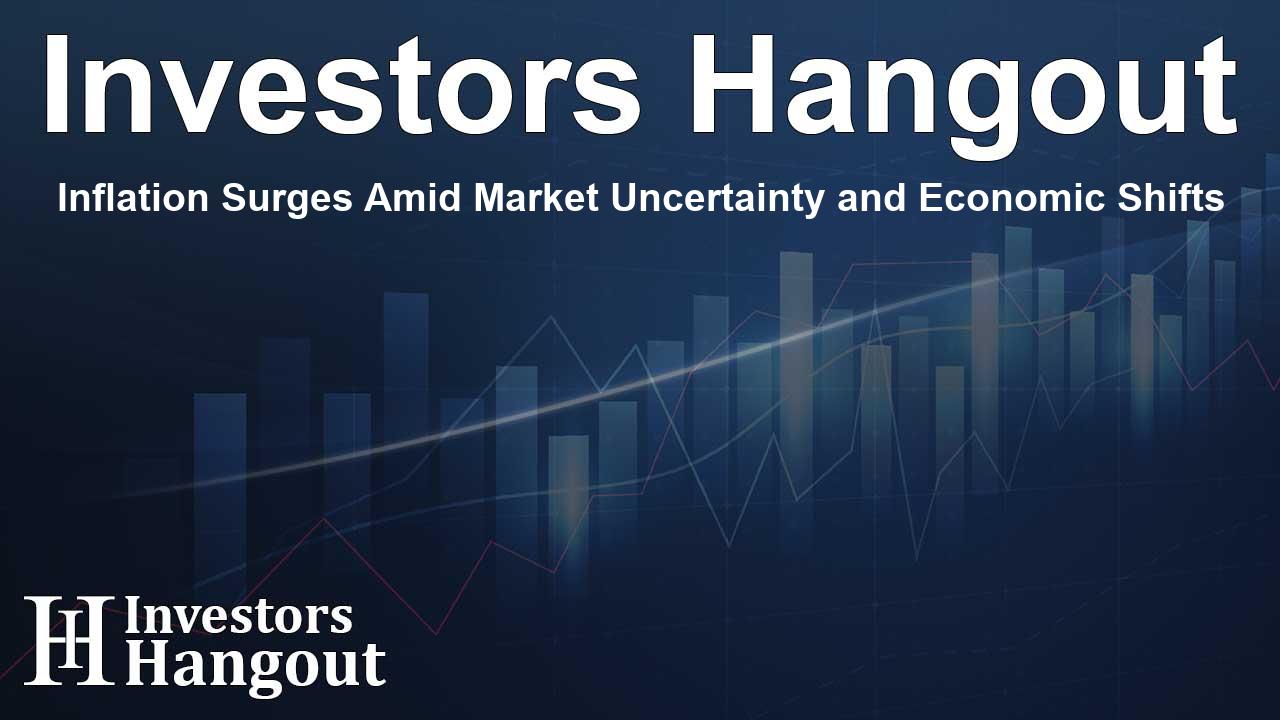Inflation Surges Amid Market Uncertainty and Economic Shifts

Understanding Current Financial Trends
The bond market is experiencing heightened tension following the release of inflation data that exceeded expectations. This situation has sparked extensive discussions among economists, financial analysts, and investors about future market trends.
Inflation Data Surprises Economists
In recent reports, consumer prices have escalated by 3% year-over-year, which is notably higher than the anticipated 2.9%. This marks the fourth consecutive increase in annual inflation, pointing towards a significant shift in market dynamics. The monthly inflation reading recorded a spike of 0.5%, the most considerable rise since mid-2023.
Expert Insights on Economic Growth
According to economists, there is a palpable concern that economic growth may be faltering. An economist recently highlighted this sentiment, linking it to longstanding trade war issues. However, the latest inflation data has redirected market attention primarily towards rising prices.
The U.S. Dollar and Treasury Yields' Performance
Following these revelations, the U.S. dollar, which had been in gradual decline, managed to rebound with an impressive 0.5% gain. On the other hand, Treasury yields, having dipped to 4.54%, increased by 10 basis points after the consumer price index was published.
Market Reactions to Federal Reserve Policies
Current trading sentiments suggest that a rate cut by the Federal Reserve may not occur until later in the year, specifically around December. This marks a significant change in the market's prior expectations. Recent comments from a public figure advocating for lower interest rates further fuel the debate, theorizing that such a move would complement existing trade policies.
Core Inflation and Its Components
Core inflation, which excludes volatile items like food and energy, climbed to 3.3% year-over-year, surpassing earlier forecasts of 3.1%. Among the various factors influencing this surge, fuel oil saw an increase of 6.2% month-over-month, while categories such as meats and poultry also experienced notable price hikes.
The Rising Costs of Food
Egg prices took an astonishing leap, rising by 15.2%, the most substantial growth witnessed since 2015. This spike accounted for a significant portion of the overall food inflation, illustrating the broader implications on consumer behavior and spending patterns.
Global Perspectives on Inflation
The recent inflation trends complicate the economic outlook for emerging markets, which have demonstrated resilience despite external pressures. Since the preceding term of leadership began, certain Latin American currencies like the Chilean peso have gained ground, reflecting a complicated relationship with U.S. trade policies.
Conclusion: Navigating Market Challenges
As inflation continues to reshape the economic landscape, investors must remain vigilant, adapting strategies in response to these changes. The interplay of rising prices, currency fluctuations, and Federal Reserve policies will be crucial in determining market trajectories in the coming months.
Frequently Asked Questions
What is contributing to the current inflation rates?
The recent inflation hike is driven by several factors, including supply chain disruptions, increased demand, and rising costs of essential goods.
How do rising interest rates impact consumers?
Higher interest rates can lead to increased borrowing costs for consumers, making loans and credit more expensive, which can affect spending behavior.
What role does the Federal Reserve play in inflation management?
The Federal Reserve monitors economic indicators like inflation and adjusts interest rates to maintain economic stability and support growth.
Are emerging markets affected by inflation trends?
Yes, emerging markets can be significantly impacted by inflation trends in developed economies, as they may face fluctuating currency values and trade complications.
What strategies can investors consider amid inflation?
Investors may look into diversifying their portfolios, investing in commodities, or exploring alternative assets that traditionally perform well during inflationary periods.
About The Author
Contact Dylan Bailey privately here. Or send an email with ATTN: Dylan Bailey as the subject to contact@investorshangout.com.
About Investors Hangout
Investors Hangout is a leading online stock forum for financial discussion and learning, offering a wide range of free tools and resources. It draws in traders of all levels, who exchange market knowledge, investigate trading tactics, and keep an eye on industry developments in real time. Featuring financial articles, stock message boards, quotes, charts, company profiles, and live news updates. Through cooperative learning and a wealth of informational resources, it helps users from novices creating their first portfolios to experts honing their techniques. Join Investors Hangout today: https://investorshangout.com/
The content of this article is based on factual, publicly available information and does not represent legal, financial, or investment advice. Investors Hangout does not offer financial advice, and the author is not a licensed financial advisor. Consult a qualified advisor before making any financial or investment decisions based on this article. This article should not be considered advice to purchase, sell, or hold any securities or other investments. If any of the material provided here is inaccurate, please contact us for corrections.
